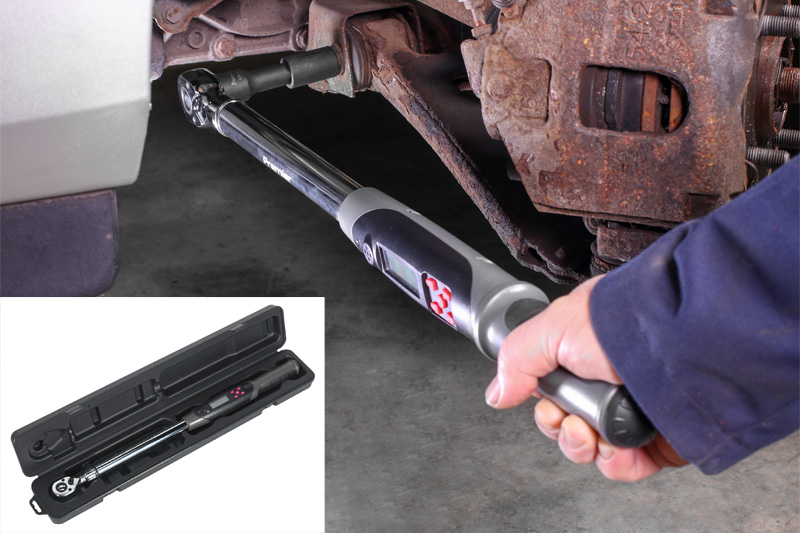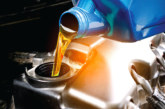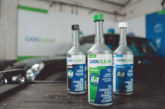
Supplying suspension components is a staple of many factors’ stocklist, but Sealey believes that there is further opportunity to upsell by offering associated tools and equipment. PMF takes a look at the added extras that can return a profit when selling suspension parts.
Over the past 20 years, vehicle suspension components have changed significantly in both their design and structure. Extra components and convenience features being added to vehicles in recent years has resulted in a need to reduce the vehicle weight in other areas. Aluminium suspension components are one such area and are now a common feature on most modern cars. This type of suspension component requires specific bolts and correct tightening procedures when being fitted.
Typically, your customers will see coated threads, thread-locking systems and torque-to-yield (TTY) bolts which are sometimes referred to as stretch bolts. The composition and heat treatment of TTY bolts and regular bolts is quite different. It is normally possible to distinguish one from the other by their appearance. TTY bolts often have an inset hex, 12 point hex, multi- spline or torx type head. TTY bolts are torqued beyond their state of elasticity and therefore become permanently elongated when fitted.
Sales opportunity
It is worth taking some time when supplying a steering or suspension component to check if that type of bolt would be required to fit the component, or if it comes supplied with it. There may be an opportunity to supply these bolts if they are required. It is also essential to correctly torque these types of bolt by following the manufacturer’s procedures and to use a suitable torque wrench when doing so.
The Sealey STW306 torque wrench not only displays torque settings, but also an angle range of up to 360°. This is essential when torqueing fixings where angular measurements are required. A customer may ask if the new bolts are really necessary, or may ask how they can tell what sort of bolts they have. As a general rule, if the manufacturer gives an initial torque setting along with a final tightening specification shown in degrees, it is a TTY bolt.
A TTY bolt is a ‘use once only’ bolt. This is because the tightening process causes the bolt to stretch to its elastic limit. Re- using it would certainly result in an incorrect clamping force being applied to the component, and could result in the bolt breaking during tightening.
Aluminium steering and suspension components do have to be viewed in a slightly different way to steel and cast iron
components. Most aluminium suspension components are forged and then heat-treated. This makes them as strong as, or indeed sometimes stronger than, steel or cast iron.
By its very nature, aluminium performs differently when compared to steel or cast iron. Any components that have undergone any form of extreme stress, for example, the road-wheel hitting a curb, or the vehicle suffering accident damage, would have to be inspected thoroughly. The most likely outcome is that the component will crack or break. Cracks can be very difficult to see, however, crack detection sprays are now available and very easy to use. Aluminium steering and suspension components cannot be subjected to any form of welding repair, because they are more heat sensitive than steel or cast iron. The heat from welding can alter the temper of the component and make it more brittle.







